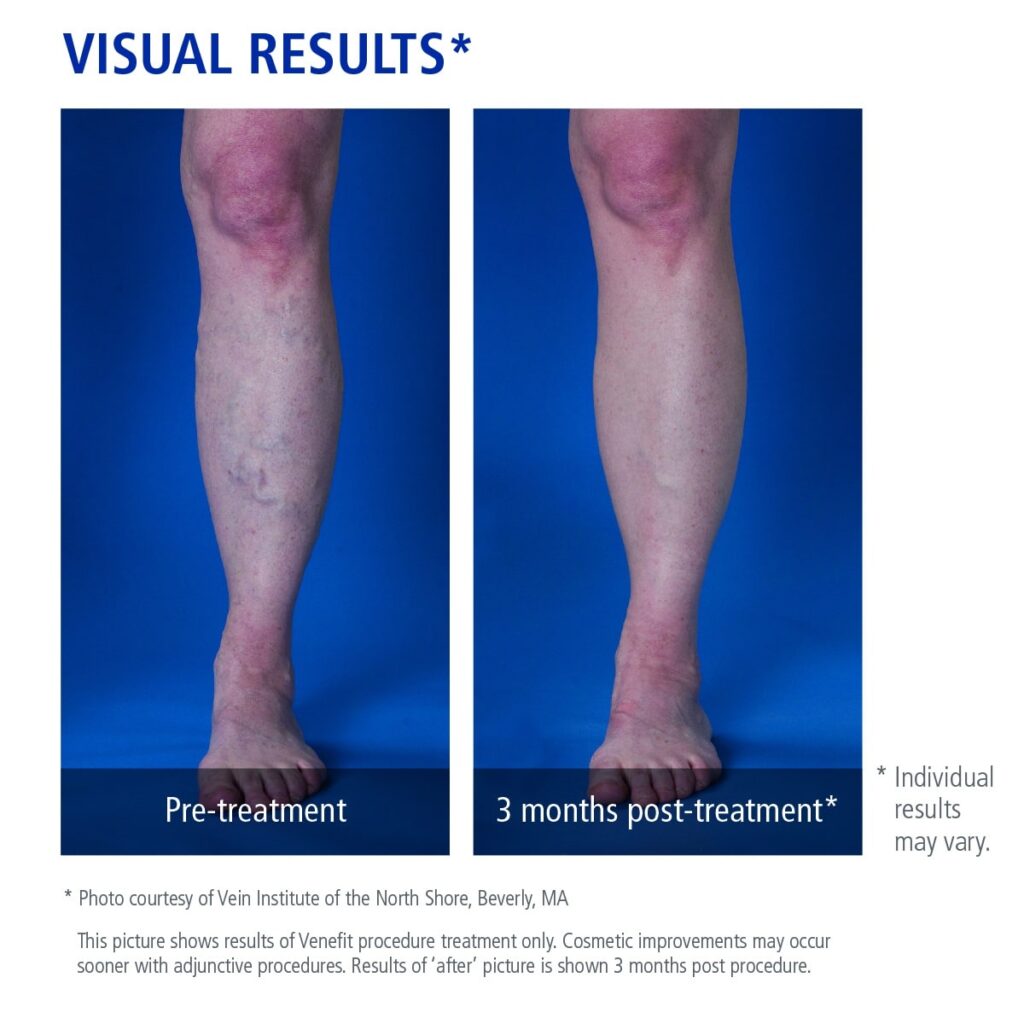At Heart South Vascular Institute provides diagnosis and treatment for a venous disease with minimally –invasive vein procedures, resulting in less pain and quicker recovers for patients. We offer a multi-faceted approach that produces the best possible results.
Vein Center Services
Our vein services include:
- Duplex Ultrasound
- Ablations
- Phlebectomy
- Sclerotherapy (Including Ultrasound Guided)
- Acute DVT treatment
Our Vein Center Providers
- Clifton R. Vance, MD
- David S Fieno, MD, PhD
- J. Hudson Segrest, MD
- Jennifer Daggett, CRNP
What is Chronic Venous Insufficiency (CVI)?
The legs contain valves that open and close to help return the blood to the heart. Venous disease also is known as venous reflux or insufficiency, occurs when these valves become dysfunctional, damaged, or weak. When this happens, the flow of blood no longer moves toward the heart but instead falls backward causing the veins to stretch, swell and twist.
If the disease is left untreated, varicose veins can progress to become CVI with symptoms that worsen over time. Fortunately, diagnosing and treating this disease early can halt its progression.
What are spider and varicose veins?
One of the most common and visible signs of venous disease is spider veins, which appear as small, purplish, or blue clusters of veins on the leg. Spider veins typically do not cause discomfort, but if they become painful, it is important to meet with a physician who is qualified in the diagnosis and treatment of venous disease.
Varicose veins are larger, bluish veins that are often raised above the skin on legs and look like twisted, bulging cords. They can be associated with pain, aches, heaviness, restless legs, or burning and itching of the skin.
What are the symptoms of venous disease?
Venous disease may not present itself until leg pain or skin problems emerge. Venous disease symptoms may include the following:
- Swelling or heaviness in legs
- Leg pain or cramping
- Visible varicose or spider veins
- Discoloration of skin
- Dry or weeping eczema
- Leg ulcers
- Heavy, tired legs and pain with exertion
- Burning or itching skin
- Spider Veins
- Varicose Veins
- Night cramps and restless legs
What venous services are offered at Heart South Vein Center?
Heart South offers the following services in detecting and treating venous disease:
- Duplex Ultrasound: This diagnostic scan shows how blood moves through your veins and measures the size and structure of your veins. While you are standing up, our technician passes a probe over your legs, and the sound waves create a picture revealing any leakages.
- Radiofrequency (RF) Ablation: In this minimally-invasive procedure, with ultrasound, the catheter is positioned into the diseased vein through a small opening in the skin. The catheter is then powered by radiofrequency (RF) which delivers controlled heat to the vein wall causing the vein to close.
- Phlebectomy: This procedure involves the removal of varicose veins through small punctures or incisions in the skin.
- Sclerotherapy: This is an effective treatment for both spider and varicose veins. Medication is injected into the affected veins, causing them to shrink. Some patients require a series of treatments.
What if venous disease is left untreated?
Venous disease can progressively worsen over time due to the pressure created by the backflow of blood in the legs. This may lead to additional spider and varicose veins, and in some cases can lead to swelling and venous stasis ulcers at the lower calf and ankle. Even if only spider veins are present, you should consult a vein specialist to determine the problem so that it can be treated.
If you think you may have venous disease, call our office today to set up your consultation or schedule a FREE VASCULAR SCREENING in our office. This can be done online or you can call our office.



